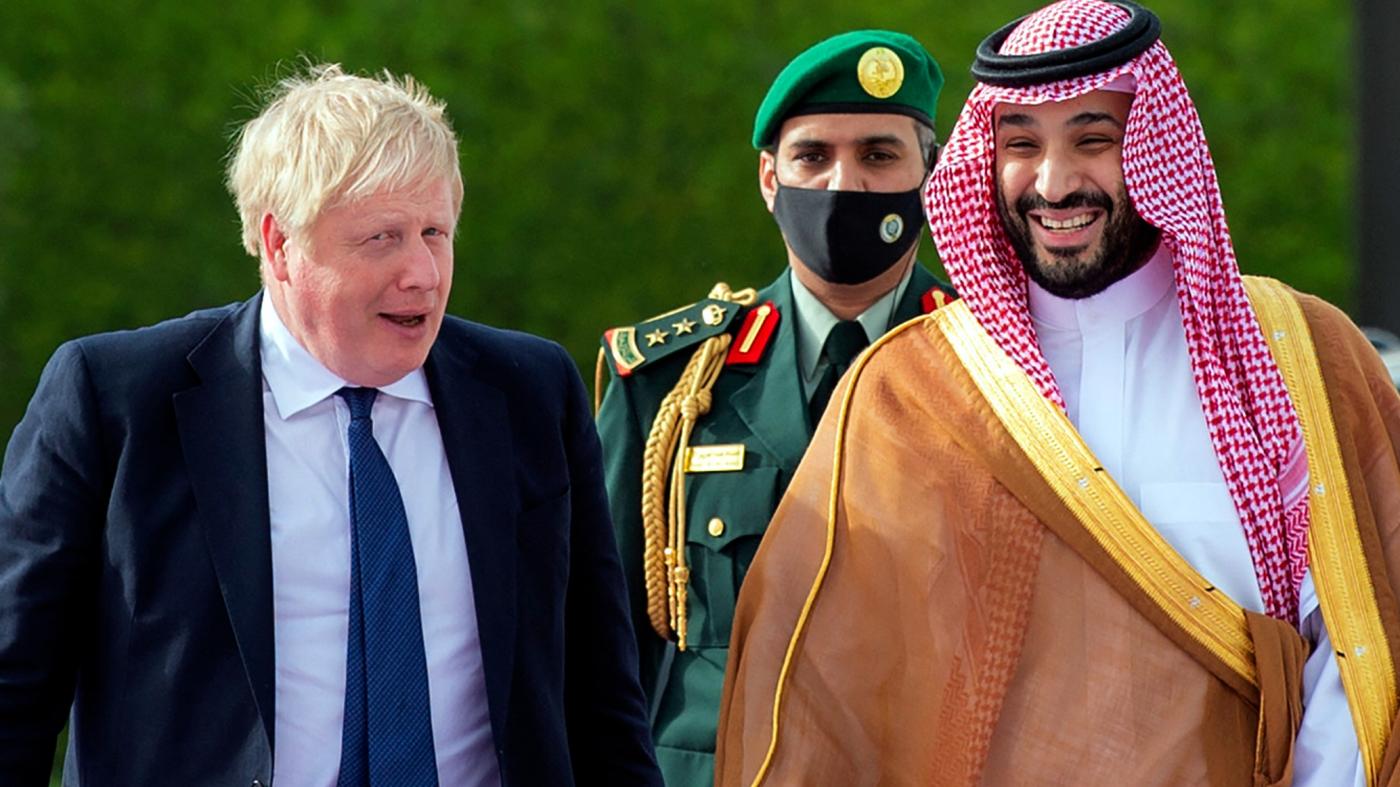
The Middle East Eye website said the MBS thumbs his nose at the West in an attempt to break his isolation and his treatment as a pariah.
The Crown Prince felt that while the whole world is occupied with the Ukraine crisis, it was the right time for such large-scale excutions.
In an article by the prominent Saudi academic, Madawi Al-Rasheed, the site indicated that British Prime Minister Boris Johnson arrived in Riyadh a few days ago amid a state massacre.
The Saudi authorities broke their record in mass executions when official media announced the execution of 81 people. Three others were executed the day before the British prime minister’s arrival.
He knows that the future of many Western leaders, notably Johnson and US President Joe Biden, along with the global economic recovery after two years of Covid-19 inflation, depends on securing cheap oil and gas.
This was the historic moment for the crown prince to flex his muscles and demand that the West treat him with respect, three years after he was considered an outcast. He is eagerly awaiting his rehab in Washington, which Biden can seal with a handshake.
In a recent interview with The Atlantic, asked if the United States had misunderstood something about him, bin Salman replied: “Simply, I don’t care.” He emphasized that no other country has the right to interfere in how it treats its nationals.
Apparently, executions, detentions, illegal treatment of prisoners and various other human rights violations are all matters of national sovereignty.
In short, if the West wants cheap oil, it should tolerate MBS excesses and executions rather than bringing such matters to the negotiating table. This is what other powers, such as Russia and China are doing.
In addition to his rhetoric, the crown prince desperately needs to be recognized in Washington as the future king and for Biden to deal with him directly, rather than addressing his elderly father, King Salman (who was recently released from hospital after “successful medical examinations”).
Indeed, bin Salman knows very well that his future depends on Washington dealing with him directly. He can flex his muscles at home and carry out as many executions as he wants.
But to secure the throne, he ultimately needs Washington, with Britain acting as a facilitator and provider of military technology, while the United States continues to be number one in arming Saudi Arabia, with Britain coming second on the list.
The crown prince also wants the United States, the UK, and other Western countries to stop lecturing him on climate change and clean energy.
Solar panels cannot replace oil wells that generate billions of dollars, sovereign wealth, global political situation, and acceptance of subjects.
Another factor is the ominous Saudi-led war in Yemen, which was made possible because both the US and Britain provided the weapons and protected them from international criticism at the United Nations and other forums.
While this help did not secure the victory bin Salman had hoped for, it did expose Western hypocrisy when it came to the autocratic rulers they needed.
Yemenis, who have neither blond hair nor blue eyes, are not at the top of the list of concerns in the West.
Like other dictators, bin Salman does not care about his reputation. But in so-called democracies, a certain level of consistency and decency should be expected, especially when western countries frequently lecture the world about human rights and moral foreign policy.
Bin Salman surely has a long list of executions to carry out in the future, and he will continue to do so. His suppressed subjects might even cherish the momentary defiance that the crown prince has exhibited in recent weeks by not fully backing the US and Europe in condemning Russia, and in carrying out executions that are considered matters of national sovereignty.
In addition, he didn’t meet Johnson’s visit with too much pomp; the British leader was met at the airport by the deputy governor of Riyadh rather than a higher-ranking official, despite the UK’s role in continuing to prop up Saudi Arabia’s archaic political configuration.
For now, bin Salman is reaping profits from a western crisis that refuses to be resolved: namely, dependence on dictators’ cheap oil.
In the short term, other oil producers may be rehabilitated, such as Iran and Venezuela. In the long term, alternative sources of clean energy may become an affordable reality. Only then can we expect a different scenario, in which bin Salman may think twice before boasting about mass murder in an effort to defy the West and please his most loyal subjects.